ELECTRICITY DEMAND RISES WITH HEAT
입력 2022.07.01 (15:05)
수정 2022.07.01 (16:45)
읽어주기 기능은 크롬기반의
브라우저에서만 사용하실 수 있습니다.
[Anchor Lead]
The summer heat is expected to peak once the monsoon season is over. This year's July and August are predicted to be hotter than in previous years. Electricity demand will likely surge whereas power supply remains unchanged.
[Pkg]
An apartment complex is shrouded in darkness. Only a few candles can be seen burning here and there. The blackout occurred last summer when electricity demand was at its highest. Nearly 70 percent of power outages in apartment complexes occur in July and August. They occur frequently during these two hottest months of the year, when demand for electricity soars. This year things could be tough as well. The Korea Meteorological Administration says this July and August are 50 percent likely to be hotter than previous years. Meaning, this summer is going to be hotter than 2021, and demand for power could surge as well. The maximum electricity demand recorded was 91.1GW last year. This year it's expected to rise to between 91.7 and 95.7GW. However, electricity supply remains largely the same as last year. With demand rising and supply remaining unchanged, the government predicts power reserve margin to decline from last year. On June 23 the electricity reserve margin already fell to 9 percent, which usually happens in the height of the summer season.
[Soundbite] Park Il-jun(Vice minister of Trade, Industry and Energy) : "Even though we are operating more nuclear power plants and have adjusted the repair plans at power generation facilities, power supply remains the same as last summer and the situation is tough."
The government will devise electricity supply measures for the summer season from July 4 and set up an electricity supply situation room. Higher electricity and gas fees took effect from July 1. Electricity charges rose 5 won per kilowatt-hour. Gas fees are up 1.1 won per MJ. On average a household would have to pay around 3,700 won more. The estimate is based on the average monthly electricity fee of a four-person household and the average monthly gas fee paid by households in Seoul.
The summer heat is expected to peak once the monsoon season is over. This year's July and August are predicted to be hotter than in previous years. Electricity demand will likely surge whereas power supply remains unchanged.
[Pkg]
An apartment complex is shrouded in darkness. Only a few candles can be seen burning here and there. The blackout occurred last summer when electricity demand was at its highest. Nearly 70 percent of power outages in apartment complexes occur in July and August. They occur frequently during these two hottest months of the year, when demand for electricity soars. This year things could be tough as well. The Korea Meteorological Administration says this July and August are 50 percent likely to be hotter than previous years. Meaning, this summer is going to be hotter than 2021, and demand for power could surge as well. The maximum electricity demand recorded was 91.1GW last year. This year it's expected to rise to between 91.7 and 95.7GW. However, electricity supply remains largely the same as last year. With demand rising and supply remaining unchanged, the government predicts power reserve margin to decline from last year. On June 23 the electricity reserve margin already fell to 9 percent, which usually happens in the height of the summer season.
[Soundbite] Park Il-jun(Vice minister of Trade, Industry and Energy) : "Even though we are operating more nuclear power plants and have adjusted the repair plans at power generation facilities, power supply remains the same as last summer and the situation is tough."
The government will devise electricity supply measures for the summer season from July 4 and set up an electricity supply situation room. Higher electricity and gas fees took effect from July 1. Electricity charges rose 5 won per kilowatt-hour. Gas fees are up 1.1 won per MJ. On average a household would have to pay around 3,700 won more. The estimate is based on the average monthly electricity fee of a four-person household and the average monthly gas fee paid by households in Seoul.
■ 제보하기
▷ 카카오톡 : 'KBS제보' 검색, 채널 추가
▷ 전화 : 02-781-1234, 4444
▷ 이메일 : kbs1234@kbs.co.kr
▷ 유튜브, 네이버, 카카오에서도 KBS뉴스를 구독해주세요!
- ELECTRICITY DEMAND RISES WITH HEAT
-
- 입력 2022-07-01 15:05:35
- 수정2022-07-01 16:45:18
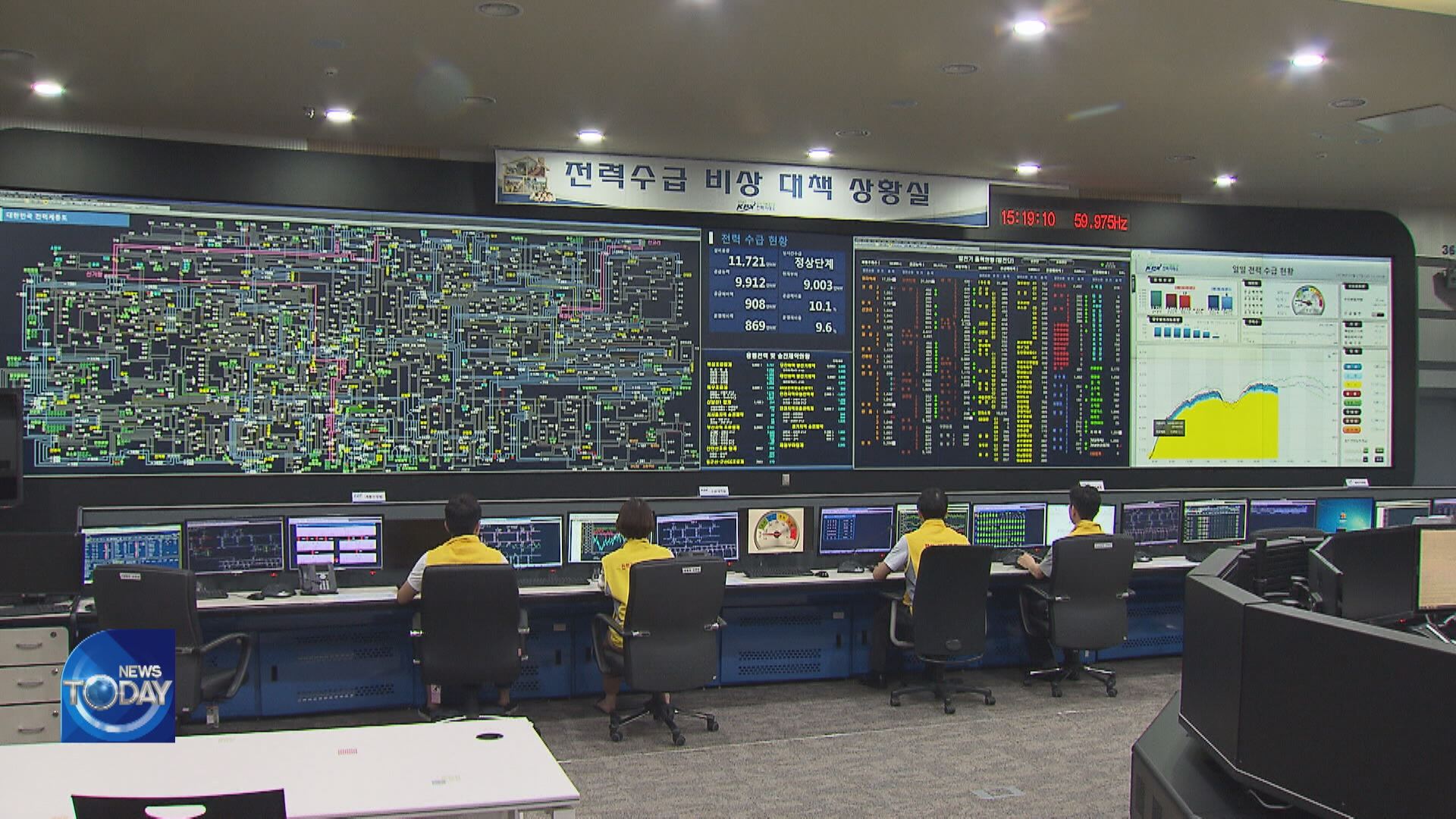
[Anchor Lead]
The summer heat is expected to peak once the monsoon season is over. This year's July and August are predicted to be hotter than in previous years. Electricity demand will likely surge whereas power supply remains unchanged.
[Pkg]
An apartment complex is shrouded in darkness. Only a few candles can be seen burning here and there. The blackout occurred last summer when electricity demand was at its highest. Nearly 70 percent of power outages in apartment complexes occur in July and August. They occur frequently during these two hottest months of the year, when demand for electricity soars. This year things could be tough as well. The Korea Meteorological Administration says this July and August are 50 percent likely to be hotter than previous years. Meaning, this summer is going to be hotter than 2021, and demand for power could surge as well. The maximum electricity demand recorded was 91.1GW last year. This year it's expected to rise to between 91.7 and 95.7GW. However, electricity supply remains largely the same as last year. With demand rising and supply remaining unchanged, the government predicts power reserve margin to decline from last year. On June 23 the electricity reserve margin already fell to 9 percent, which usually happens in the height of the summer season.
[Soundbite] Park Il-jun(Vice minister of Trade, Industry and Energy) : "Even though we are operating more nuclear power plants and have adjusted the repair plans at power generation facilities, power supply remains the same as last summer and the situation is tough."
The government will devise electricity supply measures for the summer season from July 4 and set up an electricity supply situation room. Higher electricity and gas fees took effect from July 1. Electricity charges rose 5 won per kilowatt-hour. Gas fees are up 1.1 won per MJ. On average a household would have to pay around 3,700 won more. The estimate is based on the average monthly electricity fee of a four-person household and the average monthly gas fee paid by households in Seoul.
The summer heat is expected to peak once the monsoon season is over. This year's July and August are predicted to be hotter than in previous years. Electricity demand will likely surge whereas power supply remains unchanged.
[Pkg]
An apartment complex is shrouded in darkness. Only a few candles can be seen burning here and there. The blackout occurred last summer when electricity demand was at its highest. Nearly 70 percent of power outages in apartment complexes occur in July and August. They occur frequently during these two hottest months of the year, when demand for electricity soars. This year things could be tough as well. The Korea Meteorological Administration says this July and August are 50 percent likely to be hotter than previous years. Meaning, this summer is going to be hotter than 2021, and demand for power could surge as well. The maximum electricity demand recorded was 91.1GW last year. This year it's expected to rise to between 91.7 and 95.7GW. However, electricity supply remains largely the same as last year. With demand rising and supply remaining unchanged, the government predicts power reserve margin to decline from last year. On June 23 the electricity reserve margin already fell to 9 percent, which usually happens in the height of the summer season.
[Soundbite] Park Il-jun(Vice minister of Trade, Industry and Energy) : "Even though we are operating more nuclear power plants and have adjusted the repair plans at power generation facilities, power supply remains the same as last summer and the situation is tough."
The government will devise electricity supply measures for the summer season from July 4 and set up an electricity supply situation room. Higher electricity and gas fees took effect from July 1. Electricity charges rose 5 won per kilowatt-hour. Gas fees are up 1.1 won per MJ. On average a household would have to pay around 3,700 won more. The estimate is based on the average monthly electricity fee of a four-person household and the average monthly gas fee paid by households in Seoul.
이 기사가 좋으셨다면
-
좋아요
0
-
응원해요
0
-
후속 원해요
0










![[HEADLINE]](https://news.kbs.co.kr/data/news/2022/07/01/20220701_PSTLJB.jpg)
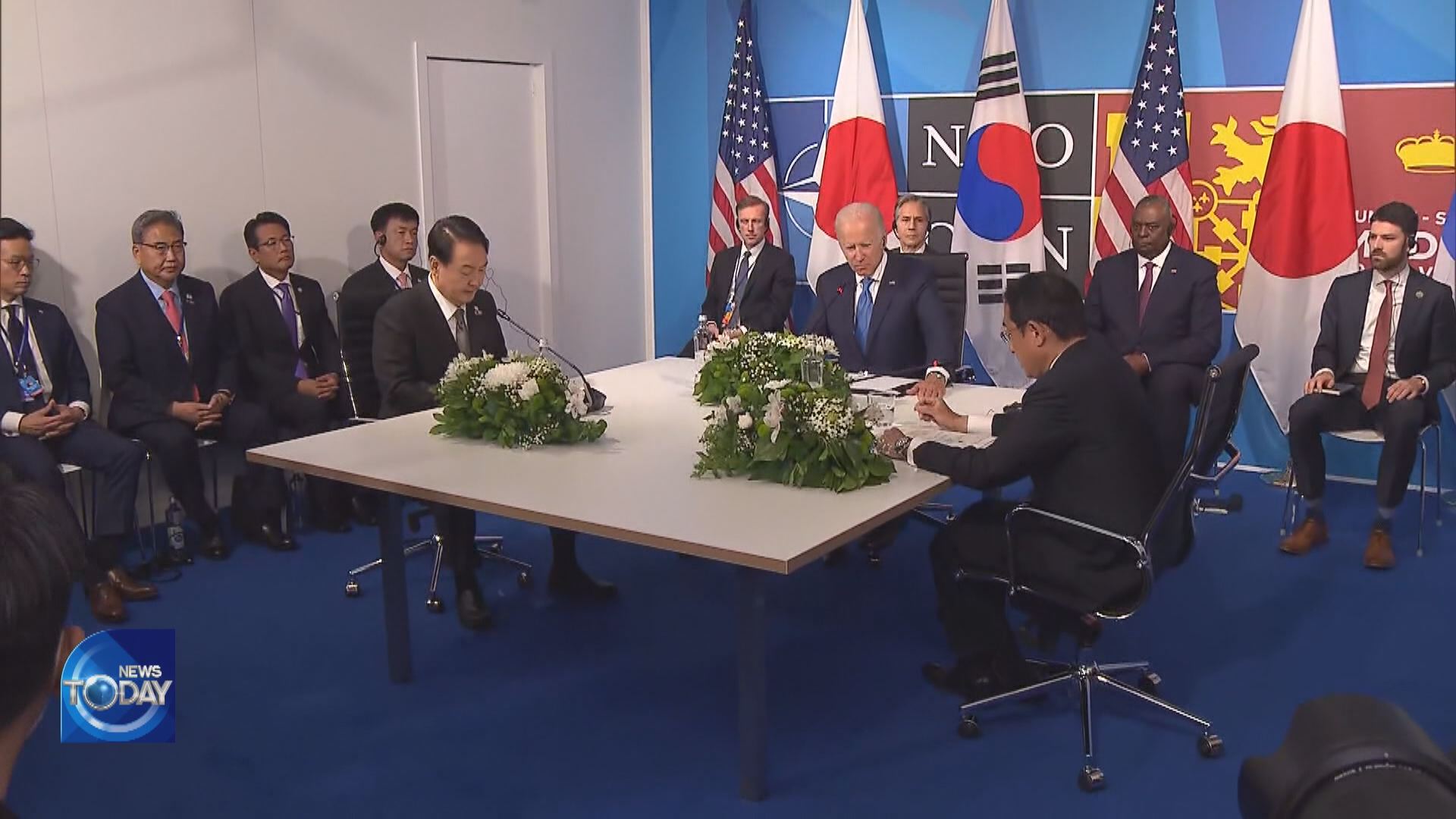
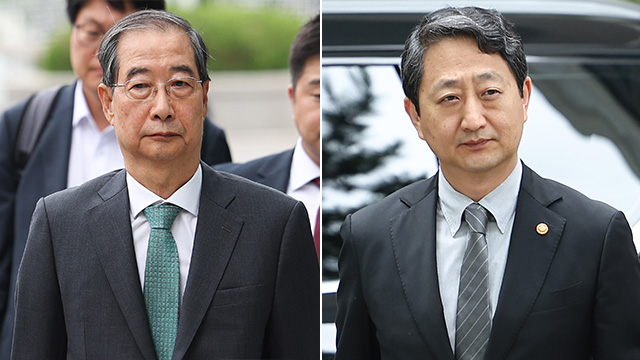
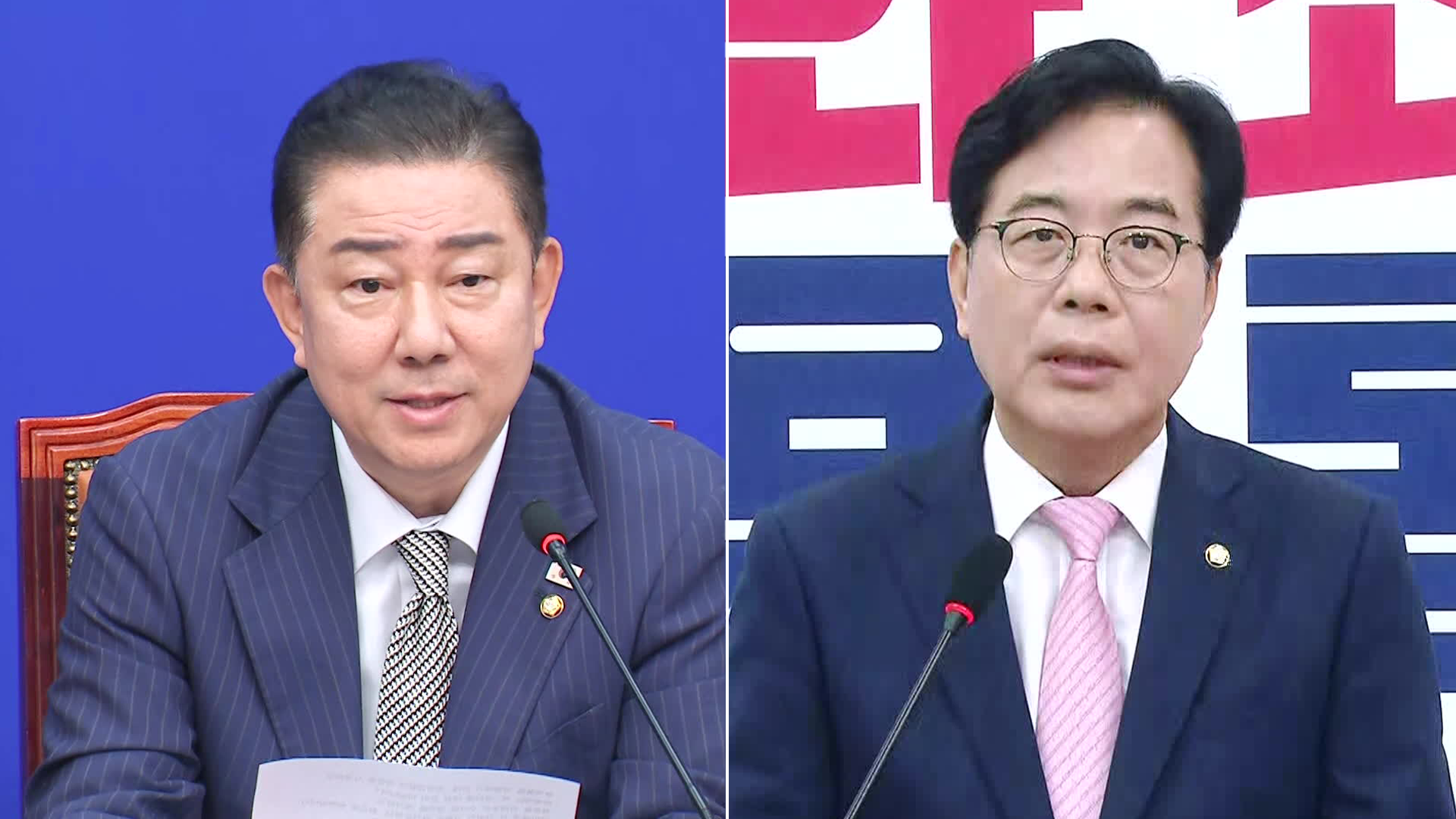

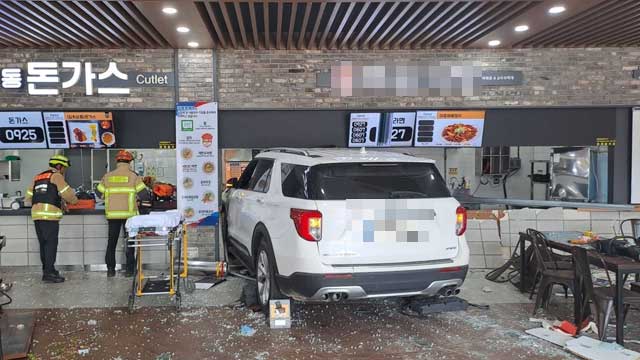

이 기사에 대한 의견을 남겨주세요.